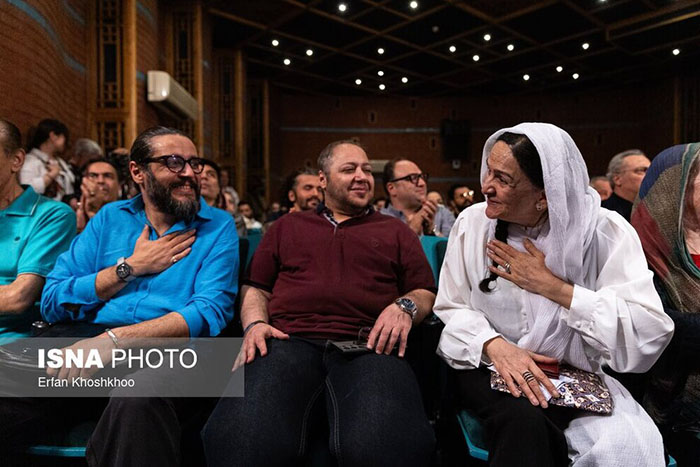Colleagues praised Adineh’s vision and her insistence on maintaining the intellectual rigor of Iranian theater despite mounting commercial and political pressures. Younger artists recalled how watching her on television or seeing her on stage had inspired them to pursue a career in the arts.
A student of hers, now an accomplished actor, said during the ceremony, “She taught us how to feel, how to think, and how to remain human in a world that often encourages the opposite.”
A moment of particular poignancy occurred when a video montage played scenes from her performances — spanning decades and genres — underscored by the voice of Hossein Gholi Mosta’an, reading from one of his novels. It reminded the audience that Golab Adineh’s artistry is rooted not only in her own talent but also in a lineage of cultural commitment.
A Cultural Icon in Transition
In a country where the role of women in public life has been hotly contested, Golab Adineh has stood as a pillar of strength and perseverance. Her work, both artistic and educational, has always been shaped by a strong sense of social responsibility.
She has often spoken of art as a tool for both personal and collective enlightenment. “Theater,” she once said in an interview, “is where we examine our fears, our dreams, and our responsibilities.”
Her continued relevance speaks to her ability to adapt while remaining true to her ideals. Even in the face of censorship and political upheaval, she has managed to retain her voice and her place on the cultural stage.

